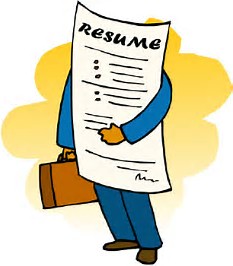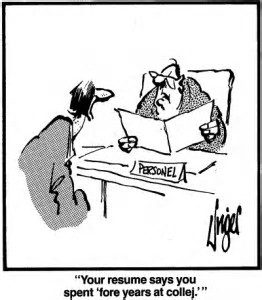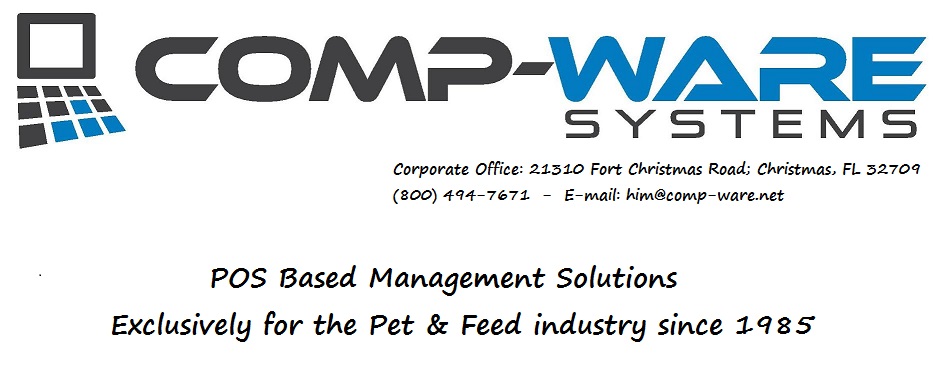How Do You Find Great Employees?
Many small business owners struggle to find great employees for their needs. Employee costs might be the largest portion of your overhead, yet hiring the wrong person costs more than their payroll.
 The cost to hire and train, combined with the salary and benefits are often high. Factor in the negative cost to your business with the wrong employees. Indeed, poorly trained workers, dissatisfied or unpleasant employees, and a rapid turnover lead to customer problems and often a toxic work environment.
The cost to hire and train, combined with the salary and benefits are often high. Factor in the negative cost to your business with the wrong employees. Indeed, poorly trained workers, dissatisfied or unpleasant employees, and a rapid turnover lead to customer problems and often a toxic work environment.
Employees reflect on the business owner and business. Often, customers interact more with employees than the actual owner. In today’s competitive world, it’s critical to find great employees. But just how do you manage that task?
What You’ll Learn In This Article
- Before You Begin. What to do before you begin your employee search.
- The Search is On. Where and how to find employee prospects.
- Applications. Their first introduction.
- Interviews. Get to know your prospects.
- The Decision. Narrowing your choices and finalizing the process.
1. Before You Begin
You know that you need to find great employees. However, the process begins before you advertise. Start with a list.
Consider:
- What does the job entail? List the daily responsibilities. Also, include less frequent duties.
- List the physical requirements. Will the employee need to be able to lift a certain weight?
- What personality traits are most desirable? Does the employee need to be able to converse easily with customers? Or, will his job be less social and more individualized? Be specific.
- List necessary qualifications and desired experience level. Again, specify each qualification. Will you train?

At this point, you might consider reviewing your list with a trusted colleague or business partner. If you have a manager who will be responsible for the new employee, include them in the discussions. While you might believe you have the ideas well seated in your mind, having a written list and reviewing with others will help ensure all is covered.
It’s important that you don’t skip this step. In fact, you might believe you have the ideas well seated in your mind. However, having a written list and reviewing with others will help ensure all is covered.
2. The Search is On.

Retail store owners often begin their search to find great employees by putting a sign in the store window. In fact, that is a good first step. Happy customers might become great employees. They usually know the store, its stock, and current employees. And your current employees might know them somewhat, too.
Your search to find great employees should include:
- Post a sign in your store. (as mentioned above)
- Ask your family, friends, current employees and other networks for referrals.
- Post to social media accounts. Consider posting to your personal accounts, as well as the company accounts. Include Facebook, Twitter, and Instagram. If your area has community Facebook pages or groups, post on those, too.
- Post to Craigslist.
- You might use paid boards such as ZipRecruiter.com. However, most retail stores find the other methods bring plenty of prospects.
- NOTE: Some recruiters recommend “poaching,” which entails going to other retail stores (of the same type or different) in search of prospects. If a person seems very likely, you mention the opportunity to them and perhaps leave a business card. However, recruiters recommend that you designate another person to speak with the potential employee, rather than approaching them yourself.
In each of your postings and ads, be very honest and specific about your needs. This helps avoid ineligible applicants. Your goal is to find great employees, not average.
3. Applications
You might have an application form for each prospect to complete. Or you may ask for a resume. Some companies now require prospects to apply online. Whichever method you use, ensure that all information is provided. Attention to these minor details help your search to find great employees.
 This is your first glimpse for many of the applicants. You might immediately weed out any that cannot complete the application. In addition, eliminate any that don’t meet the minimum criteria. This might include someone not available on the days and times you need or someone unable to lift the minimum you require.
This is your first glimpse for many of the applicants. You might immediately weed out any that cannot complete the application. In addition, eliminate any that don’t meet the minimum criteria. This might include someone not available on the days and times you need or someone unable to lift the minimum you require.
Now gather the remaining applications. It’s time for note-taking. Make notes regarding what you like and dislike about each application. Also, create a list of questions for each, based on the application. Of course, you’ll have a list of standard questions, too. However often specific questions arise from the application itself. For instance, if the applicant states that he has applied to college, you should find out if he will be available for many months or just a few weeks. Or perhaps he has job skills that you might find useful for other jobs.
Also, before choosing those to interview, review each prospects social media accounts. Often, these reveal red flags. However, don’t completely discount a person based on one Facebook post made by a friend. Instead, evaluate all accounts, overall. In fact, if red flags still persist, you might reconsider interviewing the person.
Many choose to check references at this point, too. A few phone calls now may save you from valuable interview time. Also, the reference responses often give more insight into questions to ask during the interview. Some choose to check references after the interview. Whichever time you choose, ensure you check all references before hiring.
Some business owners choose to skip gathering applications. However, most experts don’t recommend this. The application offers you a chance to begin prospecting with a head start. It’s an introduction, of sorts. Use it to its full benefit to decide which applicants you interview.
NOTE: If none of the applicants appear to be a good fit, go back to your advertising. Did you list the job correctly? Perhaps you need to list in other areas?
4. Interviews Help Reveal Potential
Interviews reveal more than most realize. Good applicants should be easily accessible to interview. If you contact them via phone to set up the appointment, you have a chance to assess phone skills, too. Jot down notes. Is the prospect friendly and easy to understand on the phone? Are you able to easily schedule an interview time?
When the prospect arrives for the interview appointment, your assessment continues. Does he arrive on time or even a few minutes early?
A favorite saying in our family is: If you are early, you are on time. If you are on time, you are late. If you are late, you are left. It actually came from a group our kids were in, but we adopted it as it is so fitting.
If your prospect is serious about the job, she will arrive a few minutes early. This buffer of time allows for the chance that something will go wrong such as a traffic issue. However, if she arrives a bit late with a reasonable reason, don’t discount her yet.
 Observe her from the moment she arrives. Is she friendly and confident? Is she dressed reasonably well for the interview? Does she make eye contact?
Observe her from the moment she arrives. Is she friendly and confident? Is she dressed reasonably well for the interview? Does she make eye contact?
Again, a nervous prospect may still be your best employee. Just as some people fear tests, many feel nervous at interviews. Just note the confidence level. Does it improve in the first few minutes?
You need to have his resume and your questions in front of you, but don’t just read through them. Instead, ask questions; create dialog. Watch for reactions. Listen carefully to his responses and his reactions to yours.
Some points to consider when interviewing:
-
- Is the prospect enthusiastic? Does he really seem to want this job? Or does he not seem to really care. Perhaps he’s been ordered to interview to continue receiving benefits. Or maybe he just needs some job for now. You are seeking potential employees who will pass over other opportunities for this particular job. Enthusiasm for this job!
- Does the prospect understand this job? Has she read the requirements? Did she research your business beyond just the sign on the door? A person striving for this particular job should have done her homework. She should come ready to explain how she can benefit your business.
- Is the prospect asking questions? A strong prospect will come with his own list of questions regarding the job. However, this list should go beyond what does it pay and how much vacation time do I get.
Mention points on the resume that need further clarification. Does she explain them? Is she uncomfortable when questioned about
 those 17 months of unemployment or is she ready with answers? Body language helps here, too. However, remember that many people show nervousness during an interview.
those 17 months of unemployment or is she ready with answers? Body language helps here, too. However, remember that many people show nervousness during an interview.- Discuss his experience. However, don’t rely strictly on it. In fact, personality factors much higher than experience. You can train a willing, friendly personality to understand the job. Difficult personalities, regardless of experience, often end up creating strife within your business.
- However, don’t overlook experience. A prospect with the right experience and the right personality for the job offers the best of both.
- Offer prospects a fact sheet about your company. Cover the basics expected and also an overview of job and benefits.
- Show your enthusiasm for your business and the job. Enthusiasm is contagious. However, avoid over-selling the position or business. Be honest.
- Avoid hiring on the spot. Interview all prospects first. Then take time to review your notes and their resumes.
- If you need an employee immediately, consider offering a temporary job to your top contenders. This trial run might include working for a day or a week, perhaps longer. Use this time to evaluate the prospect’s ability for the job. Also, assess how she works with other employees and customers.
- NOTE: If interviews are complete and you feel like none of these are a good fit, re-list your job opening. Hiring a poorly-suited employee may do more harm than having an empty slot.
- When you have your information together, make a decision. It’s time to find great employees!
5. The Decision. Now, Find Great Employees!
You have advertised, taken applications, interviewed, and possibly even given some a trial run. However, step back and pull all your information together.
Put together information on your top contenders and prepare for a little homework. At this point, you need to do a complete background check. Yes, even your maintenance personnel need to be trustworthy. Waiting until this last stage to do the background check might seem late. However, waiting until the final stage helps contain costs.
Waiting until this last stage to do the background check might seem late. However, waiting until the final stage helps contain costs. Most companies seek to keep costs reasonable in their search to find great employees.
Sometimes you might want to call your top contenders back for a second or even third interview. You might include another associate at this interview, too. However, if you are confident of your choice, this step might be skipped.
Your Decision is Made!
Contact the person or people you plan to hire. In some cases, they may now be unavailable, so plan for a back-up. In fact, many choose to over-hire, bringing in an extra employee or even two. Even with the most thorough hiring process, sometimes one just does not work out well.
Bring your new hires in to complete the necessary paperwork, introduce them to the existing staff. Instituting a paid Orientation Day helps enable your new employees to meld into the business more easily.
Most experts suggest starting new employees during slower times and offering extra assistance. They also find that insisting that all store policies are followed from day one helps keep the business running smoothly.
What About The Ones Not Hired?
Contact them, as well. In fact, you may have some in this category that you would like to hire in the future, when more jobs open. Let them know that you would like to retain their file.
For those that you have no plans to hire in the future, just let them know that you appreciate their application and time. Don’t make future considerations, but there is no need to tell them that, either.
A Final Note:
Some of your new hires may not work out as you had hoped, even after diligent training. One business saying is that you should be slow to hire and quick to fire.
Of course, we don’t recommend firing quickly in all cases. However, if and when it becomes evident that an employee is not a good fit for your business, you need to act in the best interest of your company.
Interestingly, most experts believe this is also best for the employee. The stress incurred by a person in the wrong job can be worse than that in trying to find the right job. If you need to let an employee seek employment elsewhere, you should have other applicants you can call upon. If not, begin your search once again.
The Search to find great employees causes stress?
Hiring Can Lead to Stress, Read about Stress Management


Recent Comments